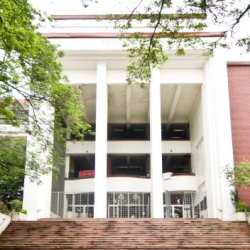

QUEZON City, Philippines (September 2) – Education is important that’s why our parents are working hard for us just to send us to a good school.
Recently, some universities here in the Philippines have already started their classes in the month of August; the primary reason is to be synchronized with the rest of the ASEAN. This development has again triggered the debate about whether it makes more sense to move the entire Philippine educational system into an August rather than June opening. The primary argument by proponents of this move is that an August opening avoids the height of the rainy season.

If almost every school in the country will start its school year during the month of August, let us see why the government chose August classes:
- To align them with the international academic calendars. Because our country is going global, we should also become globally competitive. The United States and most of Europe start school year around mid- July to first week of September. Some even start as late as first week of October. Aligning the Philippine calendar year with the rest of the world including the Association of Southeast Asian Nations (ASEAN), due to commitments to the ASEAN integration, allows for easier transition for students who will enroll in further studies in these jurisdictions. The K+12 program is also part of this alignment to facilitate mutual recognition treaties of Philippine diplomas in academic institutions in other countries.
- Aligning with the international academic calendar also facilitates student participation in exchange programs. Seniors in UP, for example, who applied for the exchange program to South Korea had to leave their semester half-done to a new semester. Top students all over the world participate in exchange programs and having a different academic calendar penalizes exchange program participation from and into the Philippines.
- Avoiding the rainy season – naturally also has its pros and cons. The main concern is the loss of class days; that is, when inclement weather forces the cancellation of classes. Many public schools around the country are also used as evacuation centres in times of weather-related disasters.
- The agencies governing education in this country require a minimum number of school days within the 10 or so months of the school year. It goes without saying that this requirement is being met by all and sundry – monsoons and typhoons notwithstanding – else the calendar would have been changed years ago.
- Students concerned about vacation time spent cooped inside the household because of inclement weather; naturally, oppose the change in the school calendar. What for is a vacation, they argue, if it cannot be enjoyed?
However, there are also disadvantages of moving the school calendar in August, Philippine Star states that:
- Some have also cited the overlap with most town fiestas and Holy Week thus may affect attendance. However, it should be asked whether holidays should take precedence over the advantages of moving the school year.
- The CHED’s technical working group notes that class suspensions due to heavy rains and typhoons tend to spike from July through October. Thus, shifting the start of the academic calendar from June to August would not make much of a difference.
- There is also the concern for families, particularly those from farming and fishing communities who would have difficulty with an August school opening because agricultural cycles cause them to run out of financial resources in August, hence a June start is most feasible.
Whether or not some universities followed this adjustment of classes, what matters most is that the quality of education is still there. What we needed the most to adjust is the system and quality of education so that we can be truly become globally competitive.
(Written by Joana Joyce Tan Marcaida, edited by Jay Paul Carlos, additional research by Lovely Ann Cruz)







